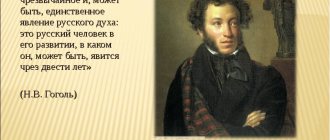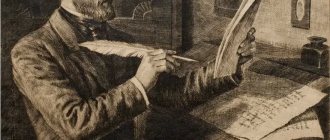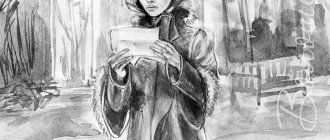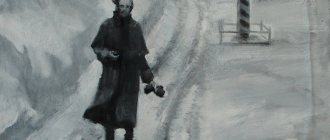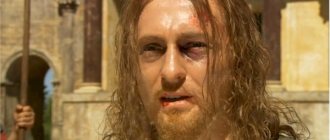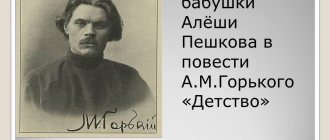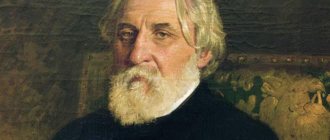Wikipedia has articles about other people with this surname, see Belkin.
| Belkin Ivan Petrovich | |
| Date of Birth | March 4, 1874(1874-03-04) |
| Place of Birth | Elisavetgrad, Kherson Governorate, Russian Empire |
| Date of death | October 4, 1934(1934-10-04) (age 60) |
| A place of death | Bogoroditskoye village, Tula region, USSR |
| Citizenship | USSR |
| Nationality | Russian empire |
| Occupation | doctor, revolutionary, party leader, organizer and chief physician of the first sanatoriums in the USSR |
| Father | Pyotr Stepanovich Belkin |
| Mother | Lyubov Nikolaevna Belkina |
Belkin Ivan Petrovich
(March 4, 1874 - October 4, 1934) - doctor, revolutionary, party leader, organizer and chief physician of the first sanatoriums in the USSR.
Biography[ | ]
Born on March 4, 1874 in the city of Elisavetgrad, Kherson province (now Kropyvnytskyi, Ukraine) in the family of tradesman Pyotr Stepanovich Belkin and his wife Lyubov Nikolaevna. Ivan Petrovich studied at the Elisavetgrad Gymnasium, after which he completed a course in medical sciences at the Kiev Imperial University of St. Vladimir (now Kiev National Taras Shevchenko University) in 1900.
In 1901 he entered the service of a reserve doctor in the Odessa district zemstvo. Since 1902 he has headed the Troitsk medical district. Here he met his future wife - poetess and writer Lyubov Mikhailovna Belkina (nee Rodionova, in her first marriage Klyachko), who was involved in the founding of the "Workers' Party for the Political Liberation of Russia" - an organization of the populist-SR movement, uniting up to 40 workers' circles, including including Moscow, Kyiv, Odessa and other cities.
In 1905, Belkin was exiled to the Samara province during martial law, but would actively participate in the revolutionary movement in Moscow. After the suppression of the 1905 revolution, Belkin went into hiding, living in Moscow on Povarskaya Street No. 37, in the house of the Titov School. In 1909, Belkin became a doctor at the first Zemsky sanatorium for pulmonary patients in Russia named after A. M. Gavrilin. In this position, Belkin studies the experience of building sanatoriums in Switzerland, Italy, and France.
During the First World War he was called to the front. After the February Revolution he ends up in Tula, where he occupies various leadership positions. In May 1919, the Presidium of the Tula Provincial Executive Committee introduced Belkin as a member of the Board of the Tula Provincial Department of State Control.
In January 1921, on the initiative of Belkin and the artists Pokarzhevsky and Shegal, State Free Art Workshops were created in Tula.
Since May 1921, he has been a lecturer in agitprop at the Tula Provincial Committee of the RCP(b), and teaches at the party faculty of the Institute of Public Education. In addition, Ivan Petrovich conscientiously fulfilled the duties of the commissioner of all military medical institutions of Tula and the province, a member of the board of the Gubernia Health Department, as well as a doctor of the Gubernia Committee, Tulgubchek, chairman of various medical commissions from the Gubernia Committee of the Russian Communist Party and the Gubernia Military Commissariat, a doctor of the workers' faculty and the Gubernia Party School, a lecturer on health issues
On January 1, 1924, he held a responsible post as a doctor in the Provincial Political Department of the city of Tula, specializing in tuberculosis diseases. Since 1925, Ivan Petrovich has been the head of the Ilyichevo tuberculosis sanatorium, located 29 km from Moscow and located in the Ilyinskoye estate.
In the spring of 1928, the People's Commissariat of Health sent Belkin to work at the Association of Resorts of the Southern Coast of Crimea. In the summer of 1934, I.P. Belkin was again on Tula soil. He is appointed director of the “Red Miner” sanatorium in the city of Bogoroditsk, located in the palace of the former estate of the Bobrinsky counts and which was in disrepair. Belkin set himself the task of creating an exemplary health resort from this destroyed and neglected sanatorium.
On October 4, 1934, in the newspapers Izvestia and Pravda, the People's Commissariat of Health of the RSFSR sadly announced the death of the doctor, which followed on October 2, at 5 o'clock. 30 min. evenings.
The sixth story by Ivan Petrovich Belkin, or the fatal love of the Russian writer
Illustration: RIA Novosti Reproduction of Alexey Venetsianov’s painting “At the Harvest. Summer” Ivan Petrovich’s chosen one was called Akulina and she was the wife of the blacksmith Pakhom, a fat and pockmarked man, whom she married in captivity, forced into a hated marriage by the circumstances of an unhappy fate. Her fate, however, was very lucky at first. As a newborn baby, she was thrown onto the master's porch, and the young lady Ekaterina Fedorovna, herself just from under the aisle, but already pregnant, came out of the bedroom in the morning, where her husband was snoring tightly, and saw him all wet with dew, covered with a scarf with a bright blue border. , a tight, moving, gently groaning, tiny bundle. But maybe not a package, but something alive. The curious expectant mother bent down and, to her great surprise, discovered a grunting, as is the case with all those who have just been born, squeaking and tenderly rosy-cheeked in the morning light. With trepidation, but without fear, she took the strange child into her arms, returned with him to the bedroom and laid the foundling right on the bed with her unawakened husband. Ekaterina Feodorovna had a strong character, because she didn’t gasp or groan, didn’t call anyone for help, didn’t even wake up her husband, but, unwrapping the rags, released from them a naked and strong girl, who looked into Ekaterina Fedorovna’s clear eyes with her still meaningless ones. deep green eyes. Despite the bewilderment and dissatisfaction of her husband, who had finally awakened, the young lady immediately said that she was leaving the girl, taking her as her pupil, and would not give her to either the village or the people for any money. The green-eyed one was christened Akulina, a nurse was found and both were placed in the outbuilding. Until her very birth, Ekaterina Fedorovna was very interested in the foundling, came up with various stories to explain how this living, so to speak, gift appeared on the porch of her house, and finally came to the idea that the girl Akulina could not necessarily be of slave origin, but was born, for example, as a result of the forbidden passion of some city bourgeois woman. Who this passion was for is unknown.
All the servants were guessing - wondering, counting with their fingers all the local paunchy creatures, but the riddle remained a riddle. Meanwhile, Ekaterina Feodorovna gave birth to a boy, who, unfortunately, was very sick, with a neck twisted like a chick’s, and the young mother, crying all over with fear, forgot about the green-eyed girl who was a stranger to her, immersed in worries about her anemic first-born. Her husband, disappointed by the despondency of family life, indulged in a card game and was always disappearing at a party, leaving her alone for entire weeks. The anemic first-born died without even living a year, Ekaterina Fedorovna became pregnant again, became covered with yellow spots, became irritable and almost stopped paying attention to the small, strong Akulina. Meanwhile, Akulina was running briskly with her bottle-like baby feet throughout the house, no one offended or touched her, she dined more often in the servants’ room, but it happened that, having realized that, the plump and sad Ekaterina Fedorovna suddenly called for her nurse along with green-eyed baby, stroked Akulina's grown red hair, kissed her on the cheek and immediately cried, imagining the dead chick again.
After the birth of twins, also sickly and fragile, but who survived, Ekaterina Fedorovna completely dissolved in her maternal responsibilities and even gave up on her irresponsible husband, who lost half of her dowry at cards.
The grown-up Akulina knew how to read and write, and for fun, Ekaterina Fedorovna ordered the governess of her pale and thin daughters, the Englishwoman Miss Harris - whitewashed, in curls, pulled up in such a way that the servants were amazed - to teach this poor girl even to play the clavichord. Emilia Harris was dumbfounded at what abilities a simple street servant possessed for various arts.
Meanwhile, fourteen years passed. Returning from the church in a severe snowstorm, Ekaterina Andrevna’s coachman lost his way and, instead of getting home, drove the carriage with the lady in a completely different direction, where his weakened horse stood up and did not move until the crazy blizzard subsided. Returning home, Ekaterina Fedorovna fell ill with a fever and soon died. Her husband, who had completely degenerated, began to organize disgusting orgies in the house, called together his equally degraded friends, and in the spring he unexpectedly married a young, but tough and stern young lady, who quickly took control of both the widower himself and his house with everything that had not yet been lost at cards. property. Akulina was not even sixteen, when the new lady, not bothering to understand either the story of the poor girl or her strange situation, exiled the orphan to the village, where Akulina, not accustomed to menial labor, learned all the hardships of peasant life. From time to time she also remembered Miss Harris, the tender touch of the lips of the deceased benefactress Ekaterina Fedorovna on the forehead, but gradually these memories seemed to be blurred under her thick red hair, obscured by the twilight of long autumn evenings, frozen under the tirelessly falling snow, and in three years no one would recognize a tall and strong commoner with rough hands from the fact that she always had to rinse clothes in an ice hole, milk a cow at dawn, and also reap, and mow, and weed, and also shovel rich warm manure in the barnyard - no one would recognize there is the same young lady sitting in a dress at the clavichord.
Due to the complete absence of a dowry and parental care, she was married off not only without asking, but only because the pockmarked Pakhom liked her appearance. And with this pockmarked, uncouth, widowed, but nevertheless well-disposed husband, such a fate has come that you could even throw yourself into the river from a cliff, or even throw your head into a noose! Pakhom was jealous of her day and night: of the last drunkard, of the beggar in the church, of the noseless wanderer with scabs and ulcers, he dragged her by the braids, beat her, lusting after conjugal, common people’s love.
Akulina, who hated him fiercely, occasionally even responded to his blows and somehow kicked him in the stomach with her knee, so much so that sparks flew from his eyes. Pakhom quieted down, but, alas, not for long. Years passed. They had no children, and the poor woman would stand in terrible anguish before the image of the Savior, praying that He would give her a child.
Illustration: RIA Novosti Reproduction of the painting “Morning of the Landowner” by artist Alexey Venetsianov
And then suddenly she went mushroom hunting and came across a sleeping master. For some time she stood quietly over Ivan Petrovich, who was stretched out in the middle of a flowering forest carpet, admiring his blush and eyelashes, until the young man woke up, spoke to her, they bent over a cool stream, and were pushed towards each other by an inexorable force with which We, sinful people, can cope.
After a short time, Ivan Petrovich began to think about the current situation in the same way as he thought about everything: with delight and eternal painful torment. He knew for sure that if his beloved had not been married to the pockmarked Pakhom, he would not have doubted it at all, but would have married her right away. What his relatives and neighbors would say did not interest him at all. The desire to live by one’s own labor, without oppressing or torturing anyone, to get a piece of simple daily bread oneself, to raise one’s offspring in noble understandings gripped Ivan Petrovich’s trembling soul so strongly that he sometimes woke up in horror in the middle of the night from shameful and obsessive dreams. In a dream, he saw the death of his hated husband, to which he was very, very involved. For example, he strangled him near a rowan tree. And also, it happened that he was thrown off the boat. It was not at all a Christian feeling for Pakhom, who was also not equal either by birth or upbringing, that at times oppressed Ivan Petrovich so much that one day he could not stand it and confessed this to Akulin. To his surprise, the red-haired and green-eyed Akulina, it turns out, completely shared this feeling and, quickly crossing herself, told her lover that if it weren’t for the fear of afterlife punishment for both of them, she would have long ago collected those fungi that would have helped her husband go to the next world and already not to return. (These fungi are delicious: pure chicken!) In horror, Ivan Petrovich pressed the distraught peasant woman to his chest and asked her never to think about it, since you cannot build the happiness of freedom on someone’s violent death.
Akulina sadly agreed with him, and that was the end of the conversation. And a couple of weeks later, when, as usual, they met in the morning in the grove, and the slender woman in her spacious and colorful sundress was so beautiful that his mind trembled under the cap of curls, and Ivan Petrovich’s body immediately seemed to fill with fire, and desire overwhelmed him madly and greedily, but then she, this slender woman, tell him the important news. At the same time, she ran a dark finger in a simple ring across her chest and whispered:
- Touch your tits. Like a stone. Look at that.
With tenderness and fear, Ivan Petrovich Belkin touched the high, lush breasts of his dear lady. They were: exactly like stone. And he had no doubt that the child was his, and not the pockmarked and rude blacksmith, but he did not know what to do with it. A child must appear in the world, and this child will live here, in the wilderness, in a hut that smells of sheepskin and cabbage soup, and he will not even be able to see the baby. And what will happen to the mother? How will Akulina, so proud of her heart, truthful, passionate, accept such a shameful life?
The only thing that immediately came to the young man’s heated head was the decision to tear his girlfriend out of the hated marriage, take her to the ends of the world, and there, on the edge, to live by hard work, but according to conscience and without deception.
While Ivan Petrovich was thinking about how and with what money to carry out his intention, winter came, the grove that sheltered the lovers became icy, and all that was left for them was to correspond. Thank you, the old oak helped, whose hollow served as a secluded storage for letters. The pockmarked, dull Pahom did not know about their correspondence, but he was sure that his wife had suffered, and often looked at Akulina’s belly with doubtful bitterness and hostility. And if this illiterate Pakhom had not been a serf slave, but a free one, he would not have done everything that he did, since the lack of education will give birth to a shaggy barbarian in a person.
Waking up one day at the very dawn (the month had barely born, the gingerbread, covered in glaze, sparkled in the heavens!) Pakhom heard that Akulin’s wife was repeating some name in her sleep. Jumping heavily from the stove, he approached Akulina, who was sleeping on a bench under a sheepskin coat, and roughly tore off the hot sheepskin coat from her. She wrapped her arms around her stomach. The eyes turned black.
– Whose child is in you? – Pakhom whispered to her.
“I am my husband’s wife,” she answered. - Whose should be in me?
He suddenly twisted her large dark red braids around his strong fist.
- What if it’s not mine? - And he gritted his teeth
– Whose then?
- So answer me! “And he pulled her head down.
She wheezed.
Illustration: RIA Novosti Reproduction of the painting by Alexey Venetsianov “On the arable land. Spring"
- Blame it, I say! - The groin turned white.
- Why should I blame myself? I am God's servant, not you...
- How so: not me? – Pakhom was surprised. - You're a bitch, wife! And ran away to fornicate?
The deft and furious Akulina hit Pakhom in the side with a strong elbow, which he did not expect, and, sagging from the pain, let go of her hair. Akulina grabbed a copper mortar, convenient for her for housekeeping.
- I’ll kill you, Herod, don’t come closer!
Pakhom retreated. Knowing the character of his intractable wife, he once again regretted that he had taken the stole from the manor’s house and not married a simple peasant woman.
- Shark, wait! Whose offspring, tell me!
- A lordly one! - said the crazy Shark. And she blushed all over, as if with joy.
Pakhom sighed hopelessly. Few tears appeared in his dull eyes.
- Bury you in the ground, viper, alive! - he said gloomily. – Why are you waving a mortar? The mare waved her tail and died!
Akulina squeezed the mortar even tighter in her wide palms.
“Tell the dog, Schaub was ticking from the yard,” Pakhom told her. “To you, damned one, this is my order: sit here and worry, and when you give birth, I will decide whether you live or not.” What are you staring at? She's gone deaf, I guess? I'm sorry, you idiot! Otherwise I would have nailed it. I'm sorry for the child!
Dear readers have no idea what feelings sometimes boiled up in the darkest and ignorant hearts of the Russian people of the first half of the nineteenth century! And not because some gentlemen, stung by the presence of slavery in Russia, wandered around the villages and taught peasant children to read and write (they later paid for this!), but only because all sinful inhabitants of this land are equal before God and you can completely do without learning: it’s not about literacy, it’s not about education.
Revolutionary activity[ | ]
In 1897, Belkin I.P. was arrested for involvement in a street anti-government protest in Kyiv regarding the suicide of the Russian revolutionary, member of the People's Volunteer Group M.F. Vetrova, who self-immolated in protest against prison orders. Participates in demonstrations of the student general democratic movement, held in 1899 under the leadership of the “Kyiv Union Council of United Communities and Organizations.” On May 15, 1899, by order of the head of the Kyiv provincial gendarmerie department, Belkin was brought to the inquiry into the case of the “Kiev Union Council of United Communities and Organizations” and the “Organizational Committee of the Kyiv Polytechnic Institute.”
During the first all-Russian strike of railway workers, Belkin was elected chairman of the Abdulinsky strike committee of the Samara-Zlatoust railway. During the December Uprising of 1905 in Moscow, Belkin led the medical stations set up at the barricades.
